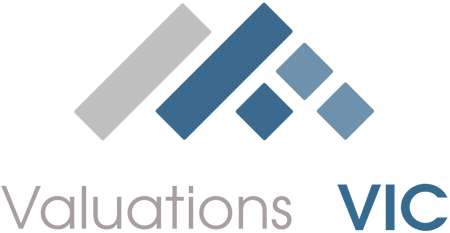
Generally, how much a property valuation in Victoria costs can range between a few hundred dollars to thousands of dollars. The cost of a thorough property valuation is determined by several factors.
- Type of property
- Location
- The purpose of the valuation.
A very basic valuation for residential properties can cost substantially less than a commercial report. As the size of the property is smaller and the valuation process is usually less complex, it leads to a more affordable report.
The valuation of commercial properties comes at a higher cost due to the complicated analyses of:
- Market trends
- Zoning regulations
- Income generation, and other factors.
Therefore, commercial valuations or retail valuation fees can cost an owner between several thousand dollars to tens of thousands of dollars and even more.
Valuation costs are usually liable to be paid by the owner of the property or the bank or institution granting loans. It would be prudent financially to compare quotes from various reputable firms to make sure that you're getting a fair price for the service rendered.
Generally, pinning down a definitive price list for a valuation widely rests on a variety of factors. Unlike many products and services, the cost reflects its significance.
Why don’t valuations have a standard cost?
Since the cost of property valuation is influenced by several factors, a one-price-fits-all becomes unrealistic.
Firstly, the type of property influences the cost. Every property has its own unique characteristics. They have different layouts, sizes, and locations. Additionally, residential and commercial property reports differ in detail. All come with their unique methods of valuation.
The type of property plays a major role in determining pricing. This is because residential estates and commercial estates require alternative methods of complex analysis. Residential properties, naturally, cost less than commercial properties do. For example, a residential property may require the comparison approach but a commercial residence may require both the comparison approach and income approach.
Market fluctuations relating to the type of property need to be predicted. Since the economy is so hard to predict, so is this kind of data. However, it is vital to conduct a thorough valuation. Once again, this approach requires more research when it comes to commercial properties, hence the price difference.
Commercial properties are also more likely to come with more contributing factors. Zoning regulations and property conditions would require a more detailed analysis and increase the cost of labour.
In addition, a valuation conducted for insurance or property tax assessments is less comprehensive and less expensive. Mortgage financing or investment analysis is more complex and pricier as a result. Therefore there is no set price for any kind of valuation, whether it be an emergency valuation or otherwise.
Lastly, cost also depends on the valuations firm chosen. It’s recommended you seek out a few quotes before deciding on one.
The associated costs of a valuation
Due to the factors involved in assessing the market value, all property valuations can become complex and lengthy processes. Various costs are associated with these valuations. They are contingent on the size, intricacy of the estate and the type of valuation. Some of the associated costs of commercial valuation are:
- Valuation fees: A fee is charged for the valuer's services. It can depend on the amount of labour incurred by the valuer. The complexity of the property, the detail required in the report, and the qualifications of the valuer also influence cost.
- Inspection fees: Valuers charge a fee to inspect a property. This can include travel costs if the location is particularly inconvenient.
- Research and analysis fees: Rigorous research and analysis of markets and different value approaches are used. Fees are incurred for the skills and work required to perform this task
- Report preparation fees: Owners are also charged for the preparation of the report. This depends on the detail necessary for the report.
- Surplus fees: Additional fees may be charged for extra services such as prepping a rental valuation. There are also fees for carrying out studies or providing expert witness testimony.
Be sure to have your valuer explains all the costs involved before proceeding with any particular firm.
Why is a valuation worth the cost?
Property valuation is an essential tool for property owners and investors as it provides the market value of an estate. There are several reasons why a valuation is worth the cost:
- Accurate pricing: They provide accurate values for sales and leasing. Knowing a property's market value ensure owners receive the best price for their property.
- Informed investments: They serve to inform owners on whether to sell, hold or purchase an investment. Property owners maximise their returns and minimise their losses on investments.
- Financing: Property owners require accurate valuations for financing. It helps them negotiate better terms on loans and interest rates which saves them money.
- Legal disputes: Valuation can also serve as evidence to avoid legal repercussions. These include eminent domain cases, and zoning issues. Therefore, they aid in protecting the legal rights of property owners.
- Peace of mind: Peace of mind is another result of receiving a valuation since owners get to confirm the value of their asset. This helps to make informed decisions and plan for the future with confidence.
Overall, a property valuation provides owners with a proactive solution for saving themselves from potential future financial loss by keeping informed. The cost of not having a valuation can easily outway the immediate costs of proactively seeking one out.
Contact us for any further information regarding quotes or valuation information







